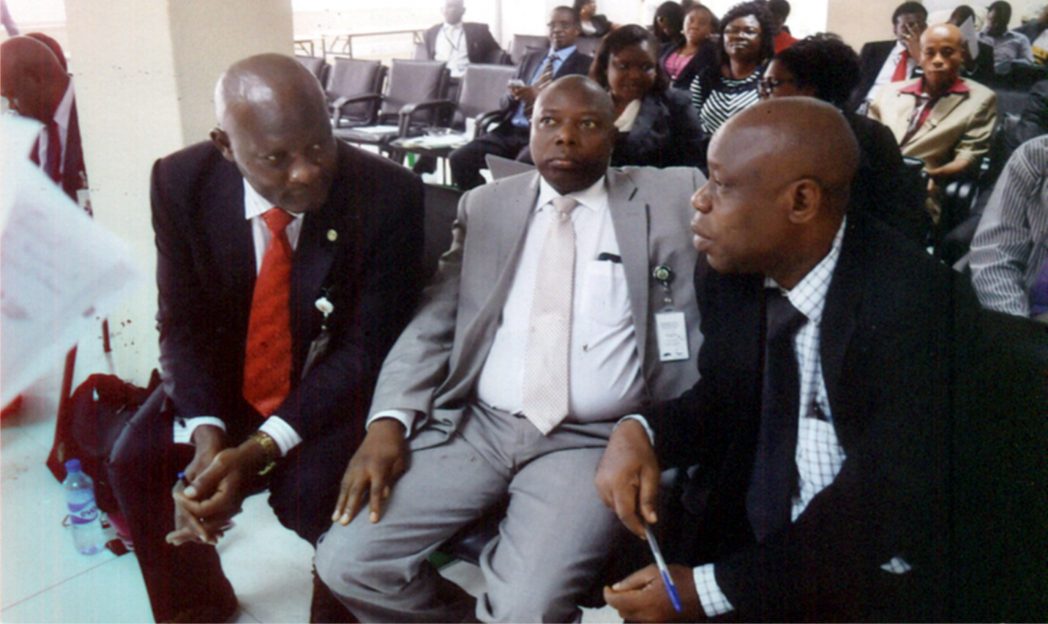Business
SEC Moves To Stem Unclaimed Dividends Profile
The Securities and Exchange Commission (SEC) has restated its commitment to reducing the huge unclaimed dividends profile in the Nigerian capital market.
SEC’s Acting Director-General, Mr. Mounir Gwarzo who made the pledge while interacting with a select group of financial journalists in Abuja, on Monday said that the commission was concerned at the growing figure of unclaimed dividends in the market.
Gwarzo said that the commission would soon embark on a nationwide enlightenment programme to sensitise investors on the benefits of e-dividend and dematerialisation of their portfolio investments.
He said that the commission had mandated the Nigerian Stock Exchange (NSE) and stockbroking firms operating in the market to provide e-dividend forms in their branch offices, for easy access by investors.
According to him, the commission decided to use stockbroking firms and the NSE because of their wider spread, compared with Registrars.
Gwarzo said that the commission would embark on an aggressive enlightenment campaign with radio jingles, to increase local participation in the market.
He said that the enlightenment campaign would be extended to the grassroots level, to bring back more Nigerians to the market, as was achieved during the banking consolidation.
The acting director-general said that the commission would focus on enhanced investor education geared toward literacy driven financial inclusion.
Gwarzo also said that SEC would partner with all the trade groups and the exchange, in line with its role to ensure investor protection and market stability.
He said that the commission had reviewed its complaints network to ensure that complaints were settled as soon as possible, to boost investor confidence.
Reports say that the Institute of Capital Market Registrars (ICMR) said that the unclaimed dividends in the nation’s bourse had reached N50.94 billion as at Dec. 31, 2013.
The President/Chairman of Council, ICMR, Mr Bayo Olugbemi, said that the figure represented 5.05 per cent of the total dividends declared for the past 10 years.
Olugbemi said that the institute would continue to enlighten investors on the importance of the electronic dividends platform, to reduce the figure.
Unclaimed dividends are used to represent the monetary value of (profit) pay-outs by quoted companies, which have not been claimed or received by shareholders/investors.

Assistant Director, Development Finance Department of the Central Bank of Nigeria, Mr Babatunde Ogunlaja (left) with Assistant Director, Banking and Payments, Mr Samuel Agboola (middle) and Manager, NAICOM, Port Harcourt, Mr Emmanuel Ndukuba, during a workshop on Financial Inclusion, organised by CBN, in Port Harcourt, recently.
Business
NCDMB, Jake Riley Empower 250 Youths On Vocational Skills

Business
NUJ Partners RSIRS On New Tax Law Education

Transport
Nigeria Rates 7th For Visa Application To France —–Schengen Visa

-

 Politics4 days ago
Politics4 days agoPFN Rejects Call For INEC Chairman’s Removal Over Genocide Comments
-

 Rivers4 days ago
Rivers4 days agoFasthire, PHCCIMA, CIPM Host CareerFest 2026 In PH
-

 Sports4 days ago
Sports4 days agoEnekwechi wins Orlen Cup in season opener
-

 Politics4 days ago
Politics4 days agoHoodlums Disrupt LP-ADC Defection Event In Lagos
-

 Sports4 days ago
Sports4 days agoSimba open Nwabali talks
-

 Sports4 days ago
Sports4 days agoFalconets, Senegalese Lionesses arrive Ibadan for qualifier
-

 Politics4 days ago
Politics4 days agoRemoval From INEC’s Portal, Abure-Led LP Faction Mulls Legal Action
-

 Niger Delta4 days ago
Niger Delta4 days agoTinubu, Jonathan, Diri Pay Last Respect To Ewhrudjakpo

